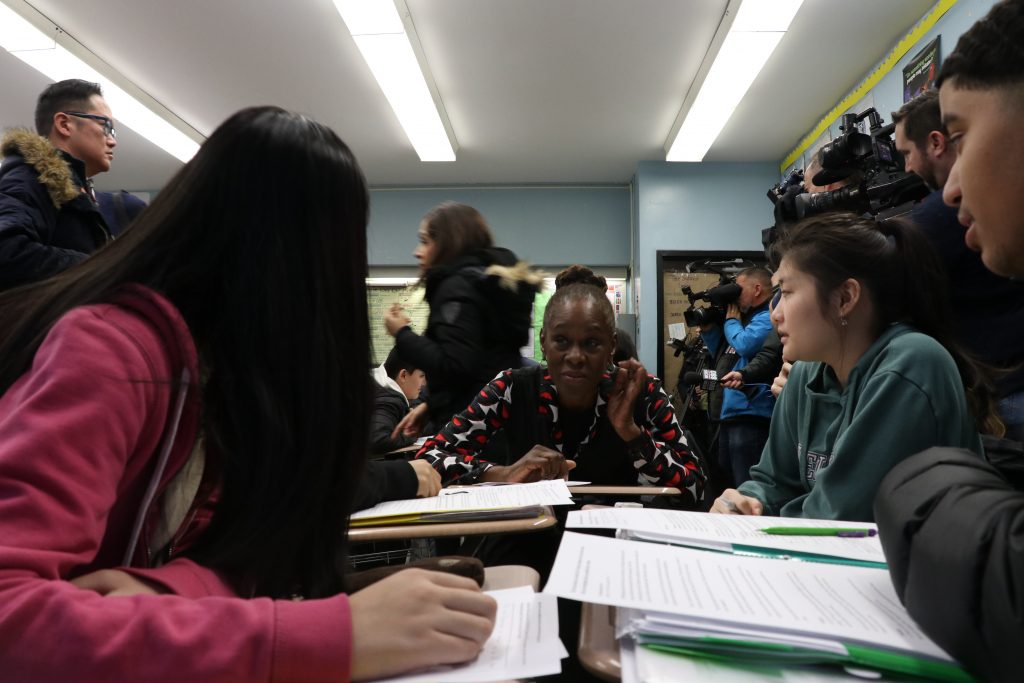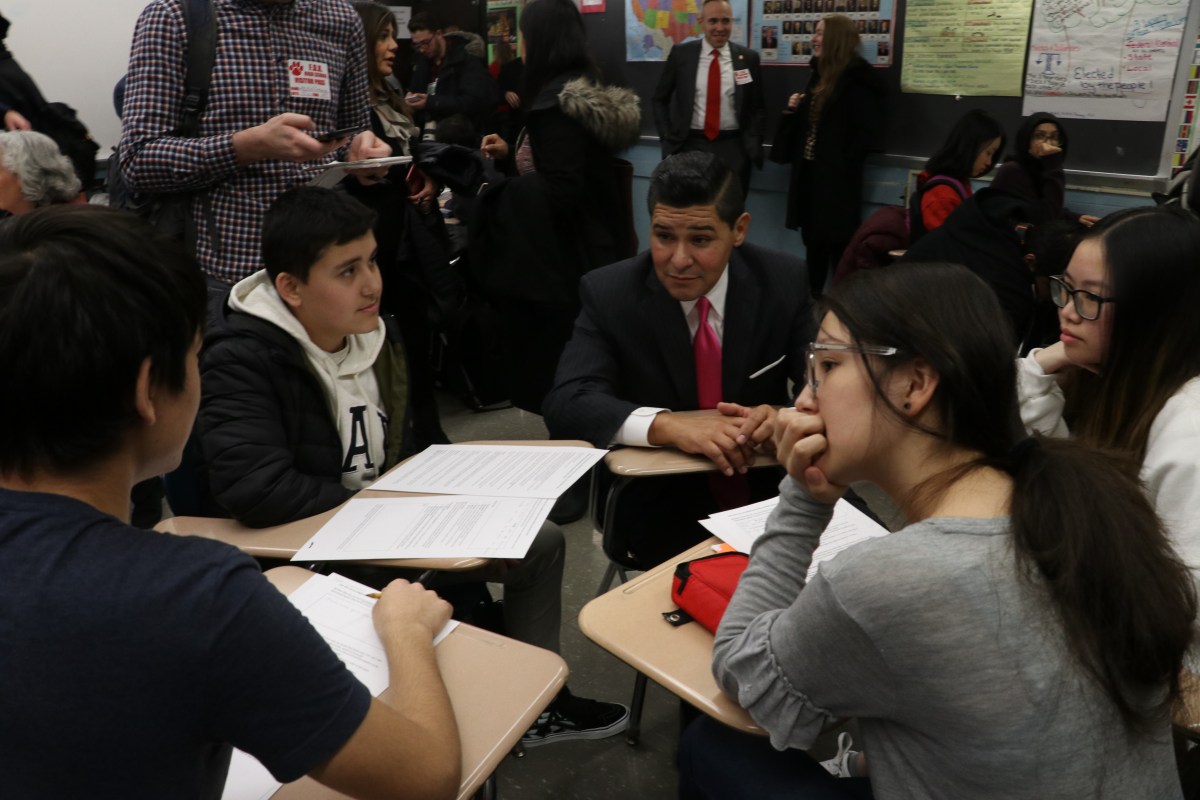New York City leaders — including Schools Chancellor Richard Carranza and the city’s First Lady Chirlane McCray — urged students at Brooklyn’s Franklin D. Roosevelt High School on Friday to learn about classmates of different races, religions and ethnic backgrounds in order to combat anti-Semitism.
“We can do so much by finding out what we have in common with people that look different than us, said McCray. “This is how we reject the violence that troubles so many of our communities.”
The visit comes during a recent surge in anti-Semitic hate crimes in the city and beyond. On Dec. 10, a man and a woman shot and killed three people in a kosher grocery store in Jersey City. Four days later, a man stormed into a rabbi’s home in Monsey, New York and stabbed five people celebrating Hanukkah.
Since Dec. 23, at least 13 anti-Semitic attacks have occurred in New York City, including two women yelling slurs and then beating a Hasidic man in Williamsburg on Jan. 2.
In response to the attacks, Mayor Bill de Blasio increased police presence in Brooklyn neighborhoods with large Jewish communities such as Midwood, Williamsburg, Borough Park, Crown Heights and Bedford-Stuyvesant. The neighborhoods in each precinct will receive four to six additional officers per tour. There will also be increased police presence outside of houses of worship.
But critics argue that an increased police presence isn’t enough to stop the spread of hate.
“We can’t police our way out of this,” said Brooklyn Borough President Eric Adams, another New York City leader present at FDR High School on Jan. 3. “If we don’t get into classrooms and have real conversations about the diversity of this city, then we are just putting a Band-Aid on the cancerous sore of hate.”
A more effect means to combat hate, leaders argued, is teaching children about the destructive nature of anti-Semitism and hate crimes in the classroom.

“We know that enlightenment starts in the classroom,” said Carranza. “It starts with how students learn about each other.”
A second prong to the city’s approach in combating hate is an increase in resources from the Department of Education for instructors to have conversations about discrimination and religious tolerance.
According to the DOE, a curriculum on hate crimes is currently being created with plans of matriculating into middle and high schools beginning in the 2020-21 school year. In a letter to Carranza sent on Friday, Council Members Mark Treyger and Steven Levin also called for the creation of a curriculum for middle school and high school students specifically about genocides throughout history and with the Holocaust, “being seen with this historical context.”
The new curriculum will building on the DOE’s existing social studies and English curricula used to teach about the Holocaust and anti-Semitism. “What we really want to do is highlight what these resources are,” said Carranza. “We’ve already provided our teachers with a lot of resources that already exist … so we are going to continue to build on those resources.”
A DOE spokesperson added that the curriculum will “focus on the concept of an occurrence of hate crimes and how they relate to historical events.”
Attacks on mainly Orthodox Jews in New York has seen a steady increase over the last two years. Last year, the NYPD reported that attacks against Jews made up almost half of all reported hate crimes. The uptick parallels a national trend as well.
According to the Anti-Defamation League, the number of anti-Semitic incidents, including vandalism, attacks and harassment had been decreasing since 2001. But that trend changed in 2014 with the number of anti-Semitic hate crimes jumping by 37 percent from 2016 to 2017, the FBI reported.


































